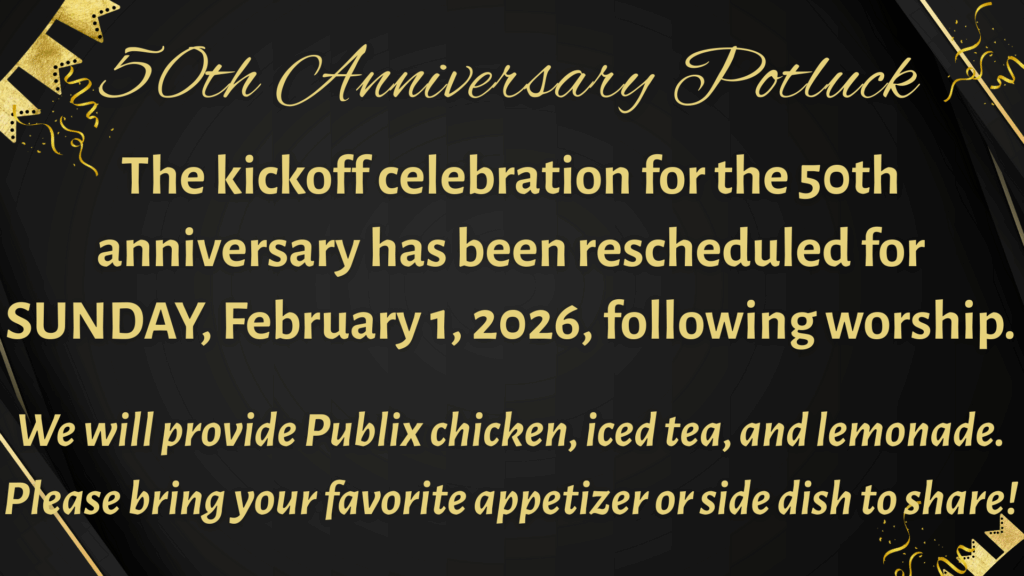It’s almost here! Are you ready? This morning marks the fourth Sunday of our eager anticipation for Christmas, and now is the time for our final Advent preparations to welcome Christ once again. We are on the cusp of God’s breaking into the world. And as tempting as it is to launch straight into Joy to the World and Silent Night, this morning I invite you to hold on to that sense of expectancy for just a few moments longer. Let this be for us those anxious and exciting final moments before birth.
Just a reminder, it’s ok if our own experience of this is a little different for each of us; after all, families grow and change in different ways. For some, the load carried is heavy, and you may find yourself out of breath, with swollen ankles, just ready for it to be over. For others, it is joyful expectation that comes with each kick, knowing things are about to change. It may even look like the dedicated work of home visits and paperwork that lead to a dotted line on which to sign for your family to grow. Or, perhaps it has snuck up on you this year, with pangs of labor beginning when you least expect it. Regardless of the path, it has brought us to the moment of birth, the welcoming of new life. And with it, the opportunity to share some of the best news we get to proclaim: a baby is born!
I remember when we were in our pre-natal classes there was a careful list in one of the books of what to bring to the hospital. Among the clothing, snacks and other comforts was a striking item “a calling card or change for the payphone.” Clearly the material was a bit dated, but it reminds us that there was a time when we had to quite literally sit by the phone to receive such a message. That is the moment of waiting that our text from Isaiah captures, as God’s people are on the lookout for a messenger. As Beth Laneel Tanner notes:
In the ancient world, there were no CNN trucks and satellites to send news instantly from one end of the world to another. News came from runners who ran from one place to another, carrying the latest news. These messengers were seen by the sentinels of the city approaching the city long before they arrived. This gap in time led to speculation of the news the messengers were bringing. It was a time of anticipating and waiting, a time of knowing that news was coming, without knowing what the tidings would be[i].
Sentinels took their posts, watching the horizon for these messengers. This is what the morning of Christmas Eve looks like.
For God’s people in Isaiah’s time, though, this posture of waiting might have been more of a bracing for the worst scenario. Remember, this section of Isaiah was written to those in exile, in situations when all hope seemed lost.
Standing in the ruins, it is hard to envision a rebuilt city. Standing in the midst of death, it is hard to believe there will be a time of salvation and shalom[ii].
And yet, the messenger comes. Isaiah calls the sentinels, and us, to attention. It is a powerful moment, not meant to be taken lightly, this dawning of incredible news in the midst of the harsh realities of the world. Here, the words of Poet Jan Richardson are fitting as we imagine ourselves welcoming those messengers. She writes:
Blessed are you
Who bear the light in unbearable times,
Who testify to its endurance amid the unendurable,
Who bear witness to its persistence
When everything seems in shadow and grief.Blessed are you
In whom the light lives,
In whom the brightness blazes –
Your heart a chapel,
An altar where in the deepest night
Can be seen the fire that shines forth in you
In unaccountable faith
In stubborn hope
In love that illumines
Every broken thing
It finds[iii].
This morning’s text reminds us of the gravity of the good news that is coming. Good news that is the fulfillment of all the promises of restoration and wholeness. Good news that will be a light to the darkness that Israel has experienced. The feet of the messenger tell the story; they come not with the slow, trudging footsteps of one who delivers heavy news of sorrow; but with the light, quick gait of a runner on the home stretch of a winning race that quickens the pace toward the victory tape. Those on the lookout see it immediately and know, even from a distance, that this will be a moment marked for joy. News they may have thought impossible, now is barreling towards them. God has rolled up God’s sleeves and is acting in the world to bring salvation. This is a message worth proclaiming with singing! And it is one that is made visible for the whole world – God’s salvation message has gone viral!
Paul Hanson says that:
It is a timely lesson, in that it reminded a searching people of crucial moments in time that define the meaning of all time, moments that give orientation to those tempted to fall prey to lethargy by placing them in the presence of the source of all meaning. They are reminded of the moment of creation, the mysterious origin of all that is in God’s incisive move against chaos. They are reminded of the moment of the awakening of destiny, the mysterious stirring of hope in the faithful response of the one ancestral couple. They are reminded of the moment of deliverance, the mysterious birth of a nation in divine deliverance from political bondage. And they are reminded of restoration, the return of the God without whom they are lost. Such moments define the meaning of all human life[iv].
The messengers run with the news, then pass it on to the sentinels and next all the people of Jerusalem, who are called not just to receive it, but to do something with it; to break into song and proclamation. We are meant to become messengers ourselves; ones who bear light to the world, even in the midst of challenge and who proclaim “Your God reigns.” That is the challenge of Christmas. To both receive and pass on this amazing promise of God’s love and presence with the world. To do so is a holy task. The prophet Isaiah helps get us ready.
With our eyes on the horizon, we can see that the light is coming. As we prepare to welcome the Christ child yet again tonight, may we be particularly attentive to the messengers who bear that light, and then may we be bold enough to become those messengers ourselves. In doing so, we will find the blessing of Christmas. Be on the lookout, the time has almost come. Amen.
Rev. Elizabeth Lovell Milford
December 24, 2017, 10:00 am Service
4th Sunday in Advent
——————————————————————————————————-
[i] Beth Laneel Tanner, “Exegetical Perspective: Isaiah 52:7-10,” Feasting on the Word: Year B, Volume 1, David L. Bartlett and Barbara Brown Taylor, editors, (Louisville, KY: Westminster John Knox Press, 2008).
[ii] Beth Laneel Tanner
[iii] Jan Richardson, “Blessed Are You Who Bear the Light,” Circle of Grace (Wanton Gospeller Press, 2015).
[iv] Paul D. Hanson, Isaiah 40-66, Interpretation, (Louisville, KY: John Knox Press, 1995)




